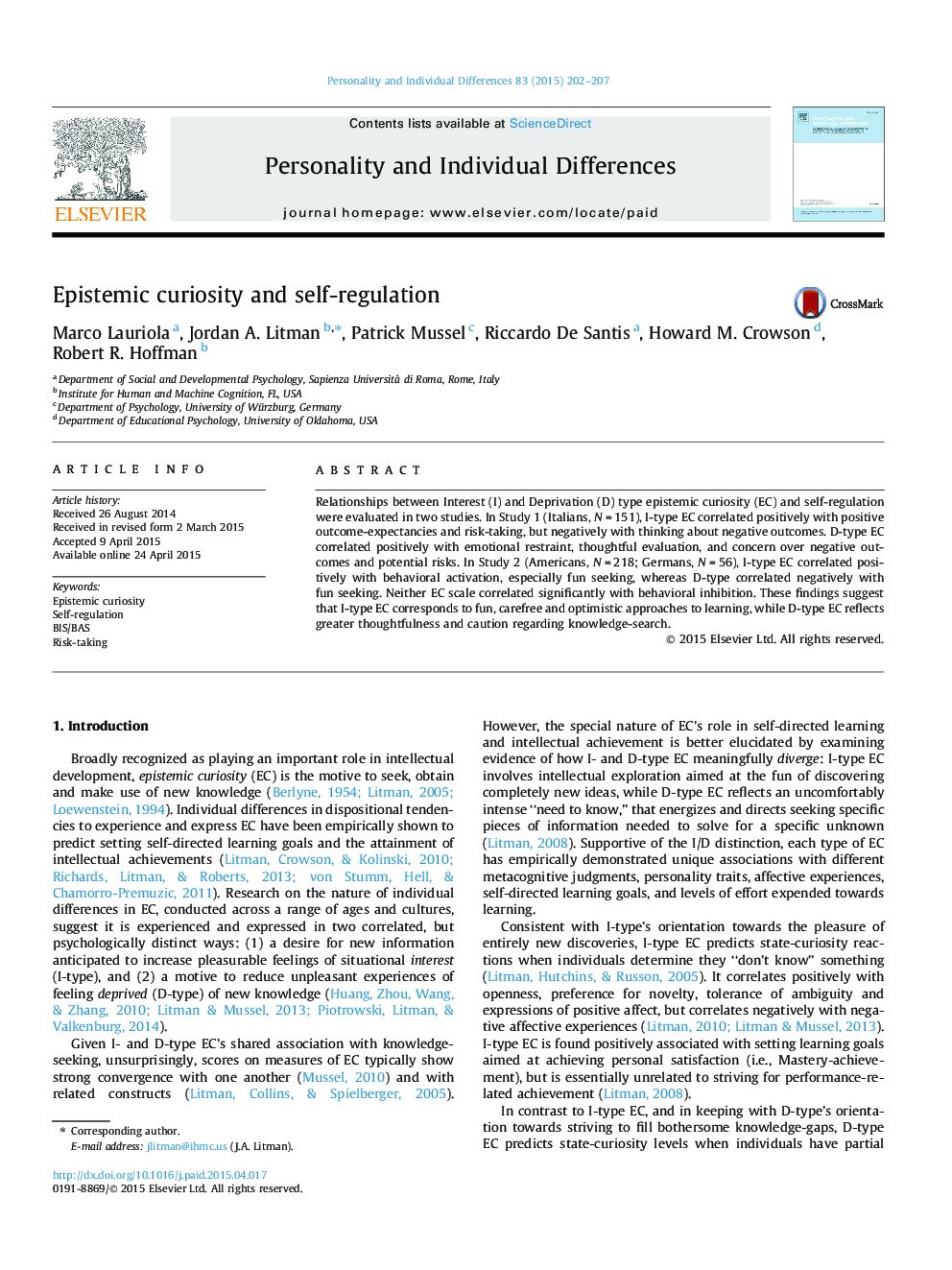| Article ID | Journal | Published Year | Pages | File Type |
|---|---|---|---|---|
| 890154 | Personality and Individual Differences | 2015 | 6 Pages |
•We examined relationships between epistemic curiosity (EC) and self-regulation.•Interest (I) type EC involves optimism, taking risks and having fun while learning.•Deprivation (D) type EC involves caution and thoughtfulness in seeking knowledge.•I-type EC orients individuals towards carefree forms of intellectual exploration.•D-type EC orients individuals to utilize their cognitive resources judiciously.
Relationships between Interest (I) and Deprivation (D) type epistemic curiosity (EC) and self-regulation were evaluated in two studies. In Study 1 (Italians, N = 151), I-type EC correlated positively with positive outcome-expectancies and risk-taking, but negatively with thinking about negative outcomes. D-type EC correlated positively with emotional restraint, thoughtful evaluation, and concern over negative outcomes and potential risks. In Study 2 (Americans, N = 218; Germans, N = 56), I-type EC correlated positively with behavioral activation, especially fun seeking, whereas D-type correlated negatively with fun seeking. Neither EC scale correlated significantly with behavioral inhibition. These findings suggest that I-type EC corresponds to fun, carefree and optimistic approaches to learning, while D-type EC reflects greater thoughtfulness and caution regarding knowledge-search.
